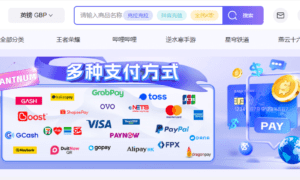Chinese finance giant Ant Group wants to link mobile payment apps globally and is aiming to increase its global footprint through its digital product, Alipay+.
TakeAway Points:
- Chinese finance giant Ant Group wants to link mobile payment apps globally.
- According to the report, Ant aims to capitalise on the early entrants into those markets with its Alipay+ product.
- According to Ant, Alipay+ currently links 1.5 billion customer accounts across more than 25 e-wallets and bank apps to 88 million merchants in 57 countries and territories.
Ant Group to Link Mobile Payment Apps Globally
Ant Group hopes to use its Alipay+ product to grow into the payments markets of Latin America, the Middle East, and Europe.
“What we found is that people want to use their home e-wallets when they travel abroad. So they don’t want to have to load their card into another app that they don’t know as well,” Douglas Feagin, senior vice president of Ant Group, an affiliate of Chinese tech giant Alibaba, said.
Ant International, the worldwide arm of the firm, launched Alipay+ in 2020. With the help of local partners in other countries, foreigners can utilise apps from their home countries to make payments in China by scanning the QR codes of Alipay, the platform that Ant primarily focuses on domestically.
“We see a huge opportunity for expansion and the relatively broad coverage we have in Asia, which we would like to replicate in places like the Middle East, Latam and Europe,” said Feagin. “People from all these regions are going to other regions, so there is a big opportunity to expand.”
According to Feagin, who is also president of Ant International, Ant had invested in nation-specific e-wallets around Asia, but the CEOs desired to expand their goods beyond that.
Feagin stated that although the company did receive some business from consumers travelling outside of China, it was “primarily focused on where the Chinese visitors went.” Through Alipay, Ant had made its way into Europe and the United States, where Chinese travel was flourishing prior to the COVID-19 outbreak.
Ant aims to capitalise on the early entrants into those markets with its Alipay+ product.
“We had the benefit that Alipay was already accepted by many merchants around the world so one of our first steps was to convert those merchants to Alipay+ merchants. So instead of just accepting a wallet, they can accept many wallets,” said Feagin.
According to Ant, Alipay+ currently links 1.5 billion customer accounts across more than 25 e-wallets and bank apps to 88 million merchants in 57 countries and territories.
Ant Expands Markets
Ant purchased investments in a number of businesses as part of its international commercial expansion, including South Korea’s Kakao Pay in 2017 and Singapore payments company 2C2P in 2022.
Moreover, Ant worked with national digital payment providers last year, including ZeroPay in South Korea, DuitNow QR in Malaysia, and SGQR in Singapore.
“Ant Group’s early vision for global expansion was centered on Southeast Asia. The company took strategic stakes in e-wallets in every major Southeast Asian economy,” Zennon Kapron, founder and director of consultancy Kapronasia, said in a report in January.
Along with Cambodia, Ant is also growing in emerging areas like Sri Lanka. Along with its expansion into the Middle East, the company has entered the European market by partnering with Dubai Duty Free at the beginning of this year, as well as European e-wallets Tinaba in July of last year and Nexi in February.
In addition, there are prospects for expansion in the company’s well-established regions, such as Singapore and South Korea. For example, while mobile payments are widely used in China, their utilisation is still significantly lower than in other nations, according to Feagin.
“There’s huge room to grow. I think a lot of people just think of using traditional payment methods when they go abroad. When you think about the big markets that receive a lot of tourists, like Thailand and Japan, the chances for payment from mobile apps to grow are enormous.”
Ant’s Modification of Global Expansion Strategy
The regulators’ decision to halt Ant Group’s initial public offering in November 2020 cast doubt on the company’s future in China.
Ant had no choice but to reorganize in order to become a central bank-regulated financial holding company.
“Following restructuring mandated by China’s regulators that occurred concurrently with various geopolitical tensions that impacted its ability to expand in certain markets, Ant modified its global expansion strategy. The result was Alipay+ which aims to resolve interoperability hiccups for e-wallets,” Kapron said.
According to Feagin, the company first focused on populous nations in order to quickly increase the number of its users. It also examined popular travel locations like Singapore, Thailand, and Japan.
“These are big markets for people wanting to come and visit and so we focused a lot on building out their merchant coverage there,” said Feagin.
Presently, it is intensifying its worldwide growth, focusing on the markets in Europe, Latin America, and the Middle East.



































